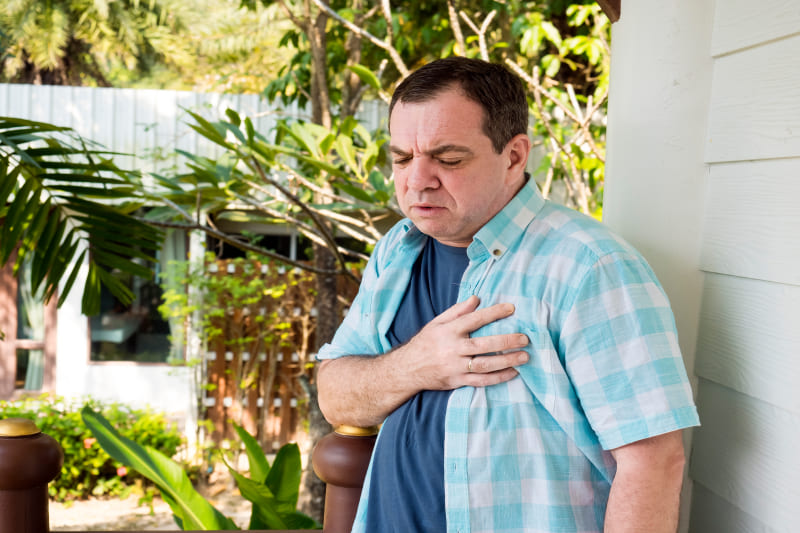Chest Pain: When to Worry and When You Can Relax
Why Does My Chest Hurt Anyway?
Our chests house a multitude of important organs, muscles, and bones. So, naturally, pain in this area can stem from a variety of sources. Here's a breakdown of some common culprits:
- Muscles and Bones: Overexertion, lifting heavy objects, or even poor posture can strain the muscles in your chest wall, leading to a sharp or aching pain. Inflammation of the cartilage that connects your ribs (costochondritis) can also cause discomfort.
- Heartburn and Acid Reflux: When stomach acid backs up into your esophagus (the tube that connects your mouth to your stomach), it can create a burning sensation in your chest that feels eerily similar to heart attack pain.
- Anxiety and Panic Attacks: During anxious times, your body goes into fight-or-flight mode, which can cause tightness, pressure, or a rapid heartbeat that might feel like chest pain.
- Lung Problems: Conditions like pleurisy (inflammation of the lining around your lungs) or pneumonia (infection in the lungs) can cause sharp chest pain, especially when you cough or take a deep breath.
- Heart Attack: Yes, chest pain can be a symptom of a heart attack. However, it's important to remember that not all chest pain is a heart attack.
Okay, But How Do I Know If It's Serious?
Here's the key takeaway: If your chest pain is severe, sudden, or accompanied by other concerning symptoms, don't hesitate to seek immediate medical attention. Call emergency services or head straight to the emergency room.
Here are some red flags to watch out for:
- Pain that is crushing, squeezing, or feels like a heavy weight on your chest.
- Pain that radiates to your jaw, shoulder, arm, or back.
- Shortness of breath, sweating, nausea, or lightheadedness.
- Pain that worsens with activity and doesn't improve with rest.
- A rapid or irregular heartbeat.
When Can I Chill Out (a Little)?
If your chest pain is mild, doesn't worsen with activity, and isn't accompanied by other worrisome symptoms, it might be due to a less serious cause. However, it's still important to see your doctor to get a proper diagnosis and rule out any underlying conditions.
Here are some signs that your chest pain might not be a medical emergency:
- Pain that is sharp, stabbing, or burning and improves with rest.
- Pain that is related to a recent injury, cough, or muscle strain.
- Pain that is accompanied by heartburn or indigestion.
- Pain that comes and goes and isn't constant.
Remember: When in doubt, always err on the side of caution and seek medical attention.
Taking Charge of Your Chest Pain
Here are some things you can do to manage your chest pain and prevent future occurrences:
- Manage stress effectively. Practice relaxation techniques like deep breathing, meditation, or yoga.
- Maintain a healthy weight. Excess weight can put extra strain on your heart.
- Eat a heart-healthy diet. Limit processed foods, saturated fats, and added sugar.
- Exercise regularly. Aim for at least 150 minutes of moderate-intensity exercise per week.
- Don't smoke. Smoking is a major risk factor for heart disease and other health problems.
- Get enough sleep. Aim for 7-8 hours of quality sleep each night.
By taking these steps and working with your doctor, you can keep your heart healthy and reduce your chances of experiencing chest pain.
The Bottom Line:
Chest pain can be a scary symptom, but it doesn't always mean the worst. By understanding the different causes and knowing when to seek medical attention, you can approach chest pain with a sense of calm and knowledge. Remember, Sentini Hospitals is here for you! Our team of experienced cardiologists and other specialists are dedicated to providing comprehensive care for all your heart-related concerns. Don't hesitate to schedule an appointment if you have any questions or are experiencing chest pain.








